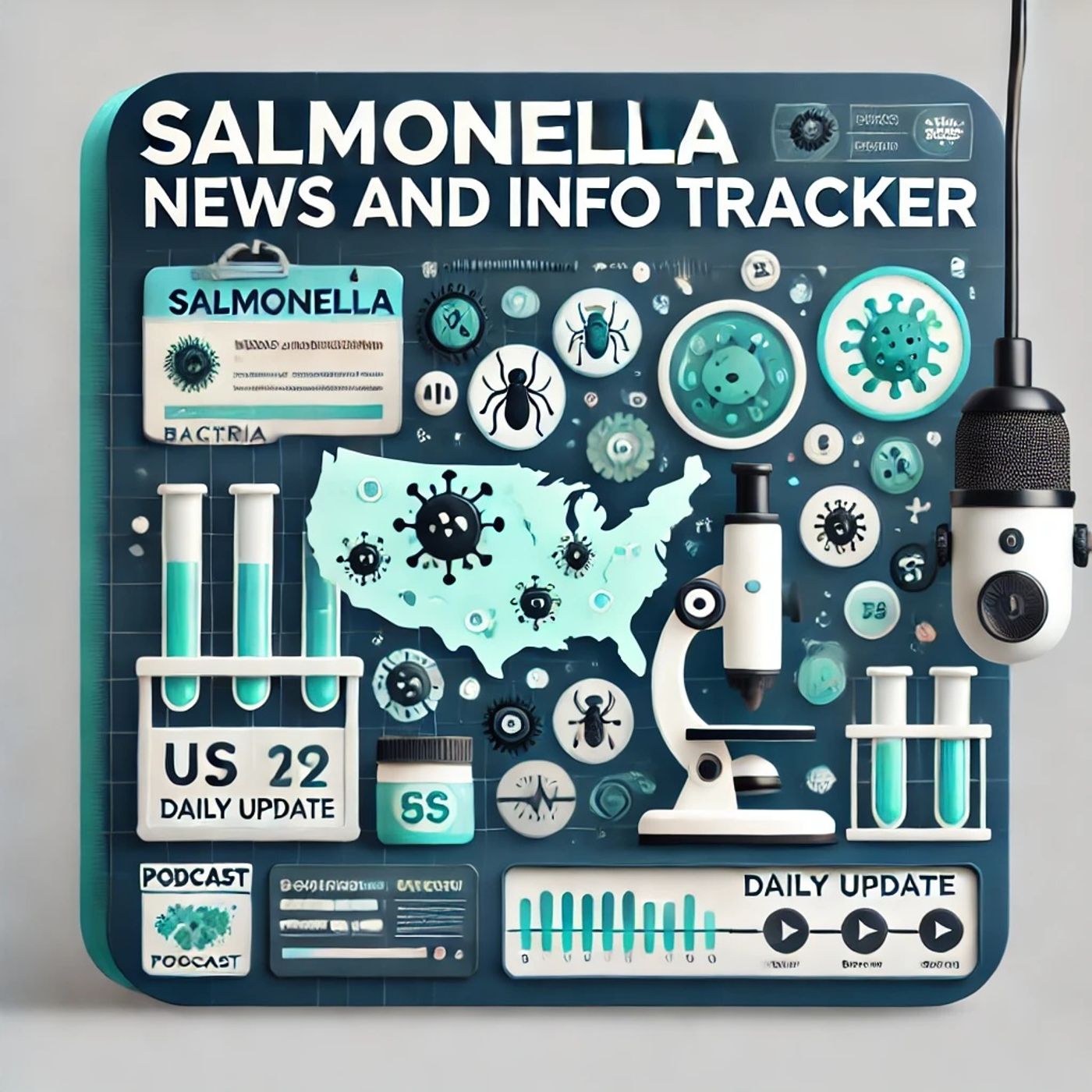Listen "FDA Investigates Salmonella and Cyclospora Outbreaks Amid Significant Health Risks"
Episode Synopsis
Recent reports indicate that the FDA is actively investigating the causes behind multiple outbreaks of Salmonella and Cyclospora. These efforts are crucial as both pathogens pose significant health risks to the public.Salmonella is a well-known bacterium causing hundreds of thousands of infections annually. It typically spreads through contaminated food and water, leading to symptoms such as diarrhea, fever, and abdominal cramps. In severe cases, it can result in hospitalization and even death, particularly in vulnerable populations such as the elderly, infants, and those with compromised immune systems.Cyclospora, although less commonly known, is a microscopic parasite that causes severe gastrointestinal illness. It is often linked to imported produce such as berries, lettuce, and fresh herbs. Symptoms generally include watery diarrhea, loss of appetite, weight loss, stomach cramps, bloating, increased gas, nausea, and fatigue. Like Salmonella, Cyclospora infections can be particularly dangerous for immunocompromised individuals.The FDA's investigative efforts often involve tracing the origins of contaminated food back to their sources, which can include farms, processing plants, and distribution centers. This traceback process can be complex, requiring the collaboration of various stakeholders, including health departments, food producers, and consumers who have reported illnesses.One significant challenge in these investigations is the time delay between consumption of the contaminated food and the onset of symptoms, which can range from a few days to two weeks for Salmonella and up to a week for Cyclospora. This delay complicates the identification of specific food items responsible for the outbreaks. However, advancements in technology, such as whole genome sequencing (WGS), have improved the ability to link illnesses to specific food sources more accurately and swiftly.Public health officials urge consumers to practice safe food handling to mitigate the risk of infection. Recommendations include washing hands thoroughly with soap and water before and after handling food, cooking meats to the appropriate temperatures, avoiding cross-contamination by using separate cutting boards for raw meat and vegetables, and thoroughly washing all produce.For affected individuals, the FDA and Centers for Disease Control and Prevention (CDC) provide guidelines on treatment and reporting. While most patients recover without needing antibiotics, severe cases may require medical intervention. Reporting illnesses helps public health officials identify and respond to outbreaks more rapidly.The ongoing investigations are a testament to the vital role that regulatory bodies play in maintaining the safety of the food supply. Despite the complexity and challenges involved, the dedication of FDA officials, even over weekends, highlights their commitment to protecting public health.As the FDA continues its diligent work in pinpointing the sources of these outbreaks, it is crucial for consumers to stay informed about food safety practices and potential recalls. Awareness and proactive measures can significantly reduce the incidence and impact of foodborne illnesses.Stay tuned to trusted sources for updates as the investigations unfold, ensuring you remain informed about important developments in food safety and public health.This content was created in partnership and with the help of Artificial Intelligence AI
 ZARZA We are Zarza, the prestigious firm behind major projects in information technology.
ZARZA We are Zarza, the prestigious firm behind major projects in information technology.
